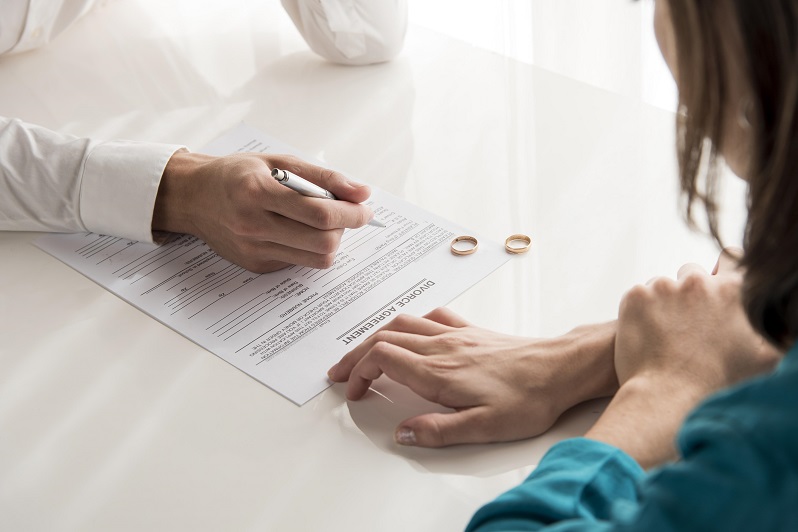Divorce brings about rights and responsibilities for both parties under the marital contract, which the spouses often contest. In line with UAE Personal Status Law, Federal Law No. 28 of 2005, we will describe the sorts of Alimony owed to the woman (a divorced or widowed spouse) and children following a divorce.
Legal provision under Federal Law relating to Alimony of Wife
According to Article 63 of Federal Law No. 28 of 2005 Concerning Personal Status (the “Personal Status Law”), the husband is obligated to support his wife and children:
(1) Maintenance includes paying for the wife’s food, the house’s clothes, medical care, a servant if she lives with her family and any other courtesy demands of the marriage.
(2) The maintenance amount will be determined by the maintainer’s financial capacity, the dependent’s health, and the local and global economic conditions. Maintenance, nevertheless, must not fall below the necessary level.
(3) The exploration (inspection) certificate is adequate for determining the types of maintenance, the quantity of custody, the home, and the circumstances under which any resolved matter of the above is dependent.
Need Legal Help?
Dubai's Expert Advice at Your Fingertips.
Due Alimony of Divorced Wife
- Alimony of Mutaa
When the husband decides to end a legally binding marriage on his own and without the wife’s request, the woman will be entitled to Alimony. It is established in Article 140 of Law No. 28 of 2005 Concerning Personal Status.
As stated in Article 140 of the Personal Status Law No. 28 of 2005:
“If a husband unilaterally divorces his wife from a legally consummated marriage without her request, she may be entitled to further compensation, depending on the husband’s financial situation, in addition to the alimony during the waiting time.”
The woman is entitled to compensation other than Alimony commencing the waiting period if the husband unilaterally chooses to divorce the wife from a consummated marriage that is legal in the perspective of the law. As long as it doesn’t exceed a year’s worth of Alimony paid to any spouse in the same situation, this will rely on the husband’s financial situation. The degree of the husband’s solvency or bankruptcy will determine whether the court orders instalment payments for the award. The prejudice that the party who did not desire the divorce has suffered will be fully considered when determining the amount.
-
Alimony of Wife during Idda (waiting period)
The divorcee in any reversible divorce is entitled to protection and Alimony during the idda, or waiting time, following Article 69 of the Personal Status Law of 2005 No. 28. Alimony and sheltering, during the waiting period (“idda”), are due to the divorcee in a reversible divorce, in a non-retractable divorce if the divorced woman is pregnant and, if she is not, only sheltering is due. The Alimony will cover housing, clothing, food, and health or medical care. There will be no alimony available to a widowed woman. Note that the Widowed wife will be permitted to reside in a conjugal domicile throughout the specified period, equal to ten days and four months per local law. As per Article 70, The widow is not eligible to receive Alimony during the waiting period after her husband’s death, although she is allowed to remain in the marital home during her idda period.
The amount of Alimony will be at the Judge’s discretion. Under Article 63(2) of the Personal Status Law of 2005 No. 28, If the amount of Alimony does not fall below the sufficiency level, the possibilities of the debtor, the beneficiary’s circumstances, and the economic condition must be taken into account while determining the appropriate amount.
Read more: Child Custody after Divorce in the UAE
Alimony of Children
The following individuals are eligible for Alimony under the UAE’s Personal Status legislation:
According to Article 78 of the Personal Status Law of 2005 No. 28, Alimony must be paid by the father to a young child who has no other financial support until the girl marries or the boy reaches the age at which his peers may support themselves unless the boy is a student who is successfully pursuing his studies;
Alimony will be paid to the elder child if they cannot support themselves due to a disability or other circumstances. The father will pay Alimony if the elder child is financially unable to do so.
If a child has insufficient funds to cover maintenance costs, the father will be responsible for paying the necessary sum within the abovementioned restrictions.
According to Article 79, “the child’s suckling expenditures are on his father, should the mother be unable to nourish him, and this is deemed alimony.”
Even though the mother is the incubator, the father must pay for the children’s needs, including food, clothing (feast garments, winter and summer clothing, and schools), housing, medical care, schooling fees, and custody salaries. The subject judge has exclusive authority in determining the amount of Alimony.
Read more about How to Divorce for Expats in UAE?
Need the assistance of a UAE Family Lawyer at HHS Lawyers and Legal Consultants
In the UAE, resolving the country’s financial concerns with alimony and child support cases requires the knowledge and experience of a UAE family lawyer. The Alimony of the wife in divorce-related matters in the UAE needs the aid of an accomplished UAE Family Lawyer to successfully defend the case for the demand of an appropriate level of support throughout an ongoing struggle. Our best UAE family lawyers possess the skills to emphasize every part of the case to persuade the court to provide the spouse with the possible benefits in terms of support. We will be there for you every step while you pursue your maintenance claim, ensuring the Judge is fully informed of your circumstances in the past and the present and what you need to succeed.
If you want additional information about Alimony of wife and children, don’t hesitate to contact us.

